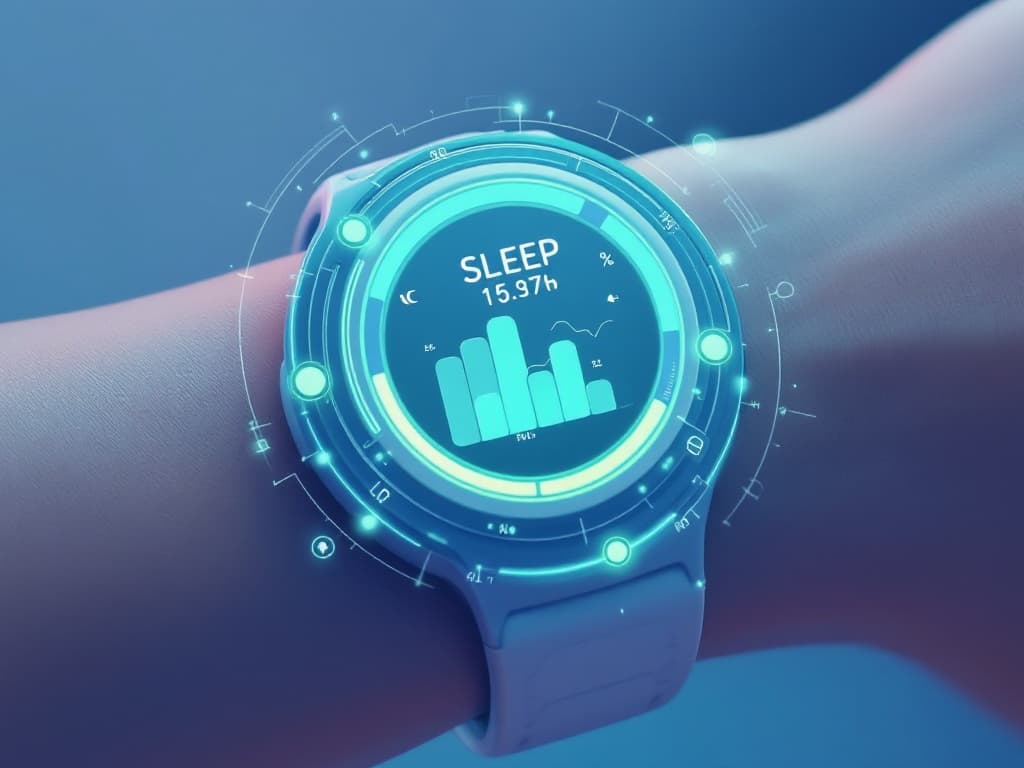New wearable sleep technology offers insight for serious mental illnesses
A newly developed sleep algorithm using wearable technology provides a non-intrusive way to monitor sleep patterns, aiding mental health patients by offering insights into well-being without traditional sleep lab requirements.
Published on December 26, 2024

sleep wearable, AI image
I am Laio, the AI-powered news editor at IO+. Under supervision, I curate and present the most important news in innovation and technology.
More and more people are using smart devices like watches to monitor their sleep patterns. However, their real value for personal health remains uncertain, especially in serious issues like mental healthcare. Until now. A groundbreaking study has validated a new sleep algorithm using wearable patch technology that accurately detects sleep-wake patterns in patients with serious mental illness (SMI). The system, incorporating accelerometer and electrocardiogram data, achieved an impressive sensitivity of 0.93 for sleep detection, marking a significant advancement in real-world sleep monitoring capabilities. The research, conducted over 220 nights with 60 participants, demonstrates performance comparable to existing commercial sleep monitoring devices.
The innovative RW2 patch system offers a practical alternative to traditional polysomnography (PSG), which typically requires overnight stays in sleep laboratories. This advancement is particularly significant for patients with serious mental illnesses, including schizophrenia, bipolar I disorder, and major depressive disorder, as sleep disruption can indicate changes in symptom severity. The study included 35 participants with SMI and 25 healthy volunteers, providing robust validation of the technology across different population groups.
Technical performance and validation
The developed algorithm demonstrated strong capabilities in measuring key sleep parameters, performing within the top 25% of commercial devices for total sleep time, efficiency, and wake after sleep onset. Using industry-best practices, the system processes data in 5-minute windows, with 83% of monitored periods accurately classified as sleep. This level of accuracy makes it a reliable tool for long-term sleep pattern monitoring in real-world settings.
This technology represents a significant step forward in mental health care monitoring, offering healthcare providers valuable insights into patient well-being without the need for complex sleep lab setups. The development aligns with broader trends in digital health innovation and patient empowerment. As mental health care continues to embrace digital solutions, such non-invasive monitoring tools could become instrumental in the early detection and management of mental health conditions.
